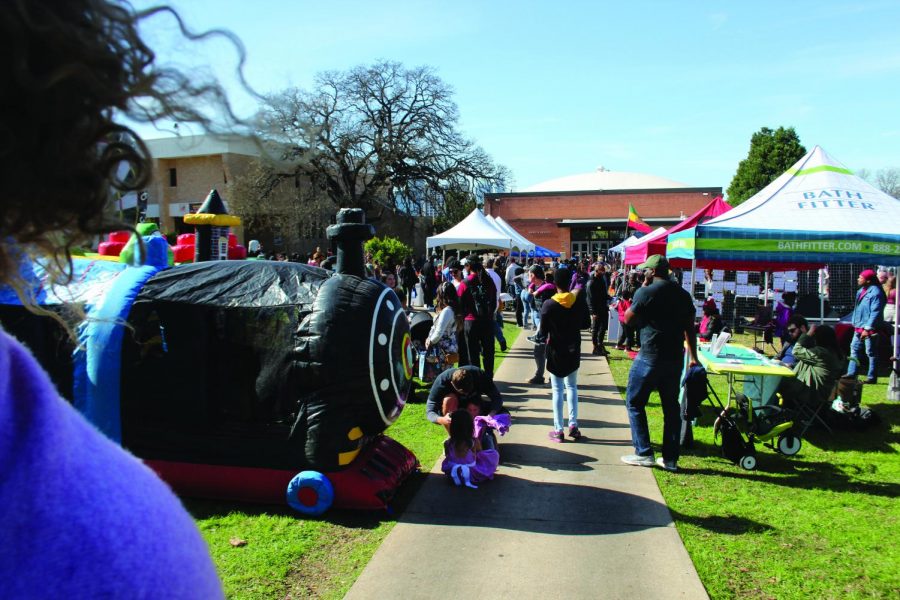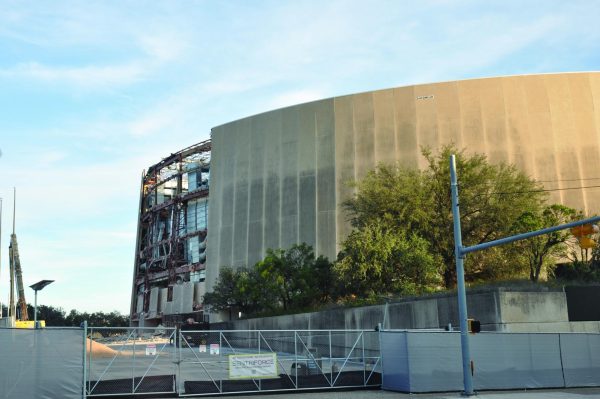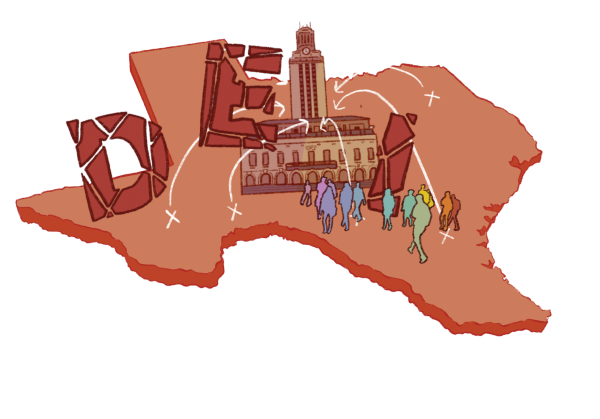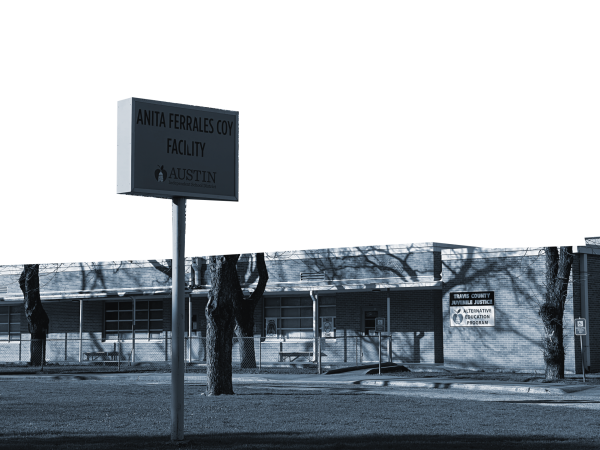Got MLK? March and Festival on Jan. 20
February 18, 2020
On the third Monday of every January, thousands of Austinites march from the MLK statue on the University of Texas (UT) campus to the Texas Capitol to commemorate activist Dr. Martin Luther King Jr.. Since 1986, his birthday has been marked as a federal holiday across the country to acknowledge his national impact. People now annually take to the streets in a series of peaceful marches in his honor, supporting the communities he strived to create.
In Austin, the march started at UT’s MLK statue and ended with a festival at Huston Tillotson University (HTU), the only historically black college in Austin. Kalayah Tillmen, a junior at Huston Tillotson University, has marched for the past three years. Tillmen is not a local Austinite, which she said made marching a whole new experience. According to Tillmen, there are very few events like the MLK march in her hometown of Dallas.
“At the time, I wasn’t in an organization, but I was looking to be in one,” Tillmen said. “So when I marched, I saw the unity and community that it created, and I said to myself, I want to be a part of that. That’s why I come every year.”
Erika Knox, the vice president of the Austin chapter of the Huston-Tillotson International Alumni Association (HTIAA) and Huston-Tillotson University (HTU) class of 2005 cheerleader, has been marching for over 20 years. She said the university makes it a big deal to march, mostly because many people at the university help run the march. Past alumni march even after they have graduated.
“I started in 2001-2002,” Knox said. “In our cheerleading squad we actually had organizations, and it was part of our community service to go out and get people to come and participate in the march.”
According to Tillmen, HTU students find a sense of community and unity in marching for Dr. King. Knox said it’s a good way to see old friends and find people who are sincere and committed.
“It started out as a way to get a way to get community service,” Knox said. “Then it became a way for me to be able to see people who are actually marching, not only because it’s MLK day, but they are marching for the injustices—racism and same-gender rights and all of that—and they are putting out that lightness and darkness that Dr. King actually spoke about in his address at Washington D.C.”
Beyond a march and a festival dedicated to Martin Luther King Jr., Austin is also home to a non-profit heritage foundation named after Dr. King. The foundation is made up of a group of ten volunteers who work to plan the march each year. The organization also works to give out scholarships to eight of the best and brightest students nominated through numerous programs. Carol Wright, who is the chair of the Austin Area Heritage Council, has been overseeing every part of the foundation for over 20 years.
“Almost everybody who is a member of the Heritage Council has been a part of the Heritage Council for over five years, some ten, so everybody pretty much understands what their role is,” Wright said.
The process of planning the march starts in September, but the march itself doesn’t happen until the following January. The date of the march needs to be picked beforehand, as well as all the venues, routes, bands, singers, food trucks and speakers who will be chosen and hired for the ceremony.
“The process is to confirm the site at UT where we kick off the march at the MLK statue, and then we go from there to the capitol,” Wright said. “It’s not just a given that we’re automatically going to be able to go to those spots. We work with the coordinators for each of those spots to confirm and submit.”
There are multiple competitions for younger children that offer college scholarships. There is a separate category for teens to be nominated and selected for the chance to impact their college future, with sponsors such as Seton Healthcare.
“We give away three $2000 scholarships and five $1500 scholarships every year, which are provided by our sponsors Seton Healthcare and Applied Materials,” Wright said. “Somebody from their organization comes and gets up on stage and hands out the scholarships as the kids are announced. It’s a pretty good diverse group of students that are nominated, too.”
Since Martin Luther King Jr.’s first march in support of African-American civil rights in 1968, the world has peacefully followed by holding marches in continuation of his work.
“This is the largest I have ever seen it,” Tillmen said. “The march becomes more and more well known in Austin, so as the years pass, more and more people rack up in attendance. It truly feels like we are with Dr. King when we are marching.”










